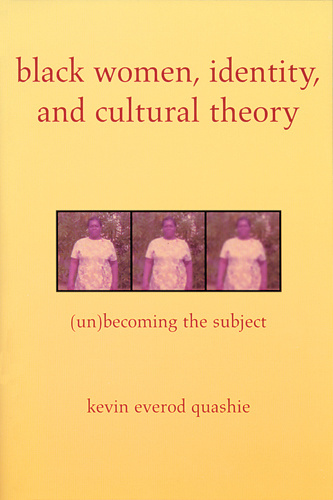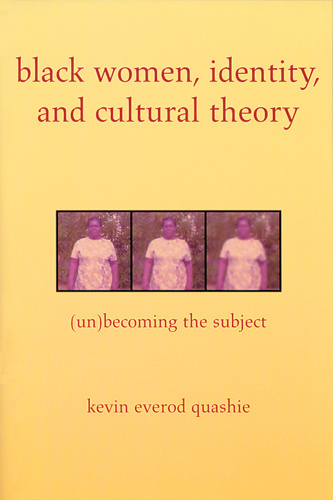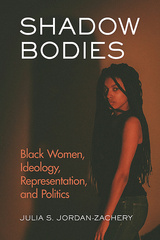Black Women, Identity, and Cultural Theory
(Un)Becoming the Subject
In Black Women, Identity, and Cultural Theory, Kevin Everod Quashie explores the metaphor of the “girlfriend” as a new way of understanding three central concepts of cultural studies: self, memory, and language. He considers how the work of writers such as Toni Morrison, Ama Ata Aidoo, Dionne Brand, photographer Lorna Simpson, and many others, inform debates over the concept of identity. Quashie argues that these authors and artists replace the notion of a stable, singular identity with the concept of the self developing in a process both communal and perpetually fluid, a relationship that functions in much the same way that an adult woman negotiates with her girlfriend(s). He suggests that memory itself is corporeal, a literal body that is crucial to the process of becoming. Quashie also explores the problem language poses for the black woman artist and her commitment to a mastery that neither colonizes nor excludes.
The analysis throughout interacts with schools of thought such as psychoanalysis, postmodernism, and post-colonialism, but ultimately moves beyond these to propose a new cultural aesthetic, one that ultimately aims to center black women and their philosophies.
Introduction: What Becomes...
Chapter 1 - The Other Dancer as Self: Notes on Girlfriend Selfhood
Chapter 2 - Self(full)ness and the Politics of Community
Chapter 3 - Liminality and Selfhood: Toward Being Enough
Chapter 4 - An Indisputable Memory of Blackness
Chapter 5 - The Practice of a Memory Body
Chapter 6 - Toward a Language Aesthetic
Chapter 7 - My Own, Language
Conclusion... What is Undone
Notes
Works Cited
Index






